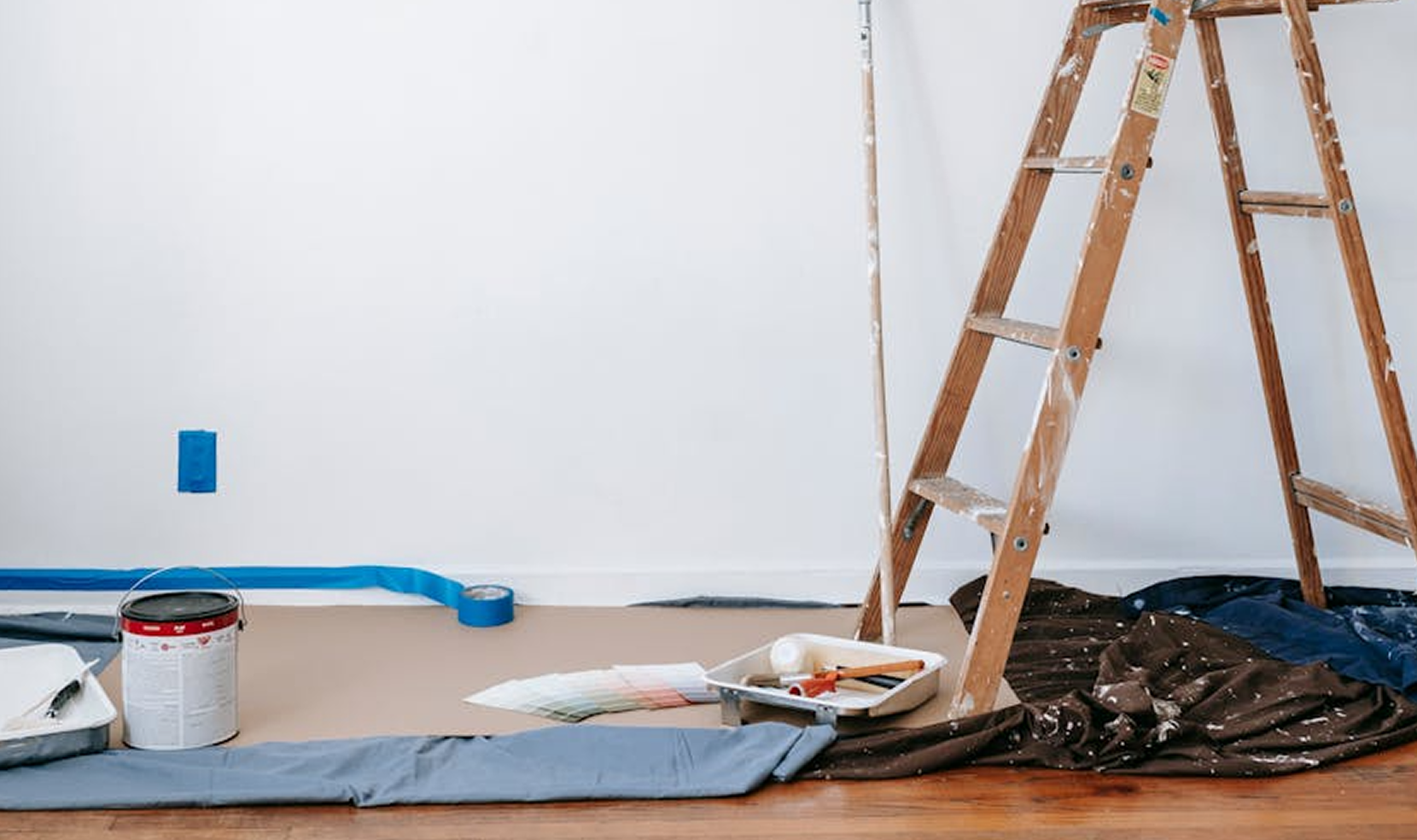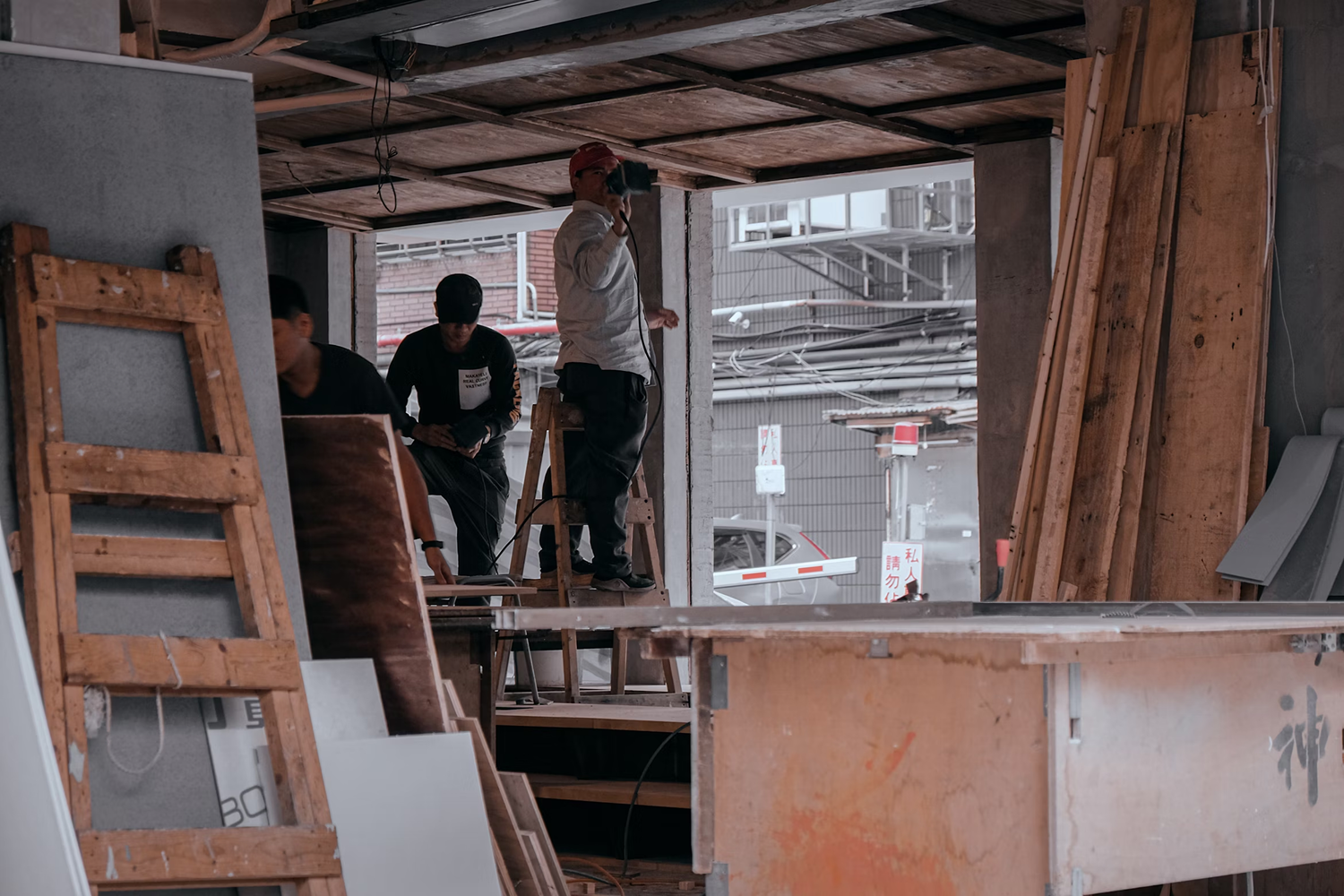Renovation Red Flags: How to Spot a Bad Contractor

You hired a contractor who said he worked under someone else’s license. He gave you a two week timeline and asked for a 50% payment upfront. Work started, then stalled, and now he ignores your calls and messages. You're left with a half-finished renovation and no one to hold accountable.
Choosing a bad contractor can lead to budget overruns, safety issues, and unfinished work. That's why we've provided this guide to help you identify contractor red flags before it’s too late. For more information, see our list of mistakes to avoid during renovation.
Table of Contents
• Hiring A Contractor Can Make or Break Your Project
• Red Flags to Look Out for Before Hiring a Contractor
• Signs You’ve Hired a Bad Contractor
• How to Deal with a Bad Contractor
• Finding Reliable Contractors Through Reno
• Don’t Let a Bad Contractor Ruin Your Renovation
Hiring A Contractor Can Make or Break Your Project
Renovation is a major project and even small renovations can be expensive. Homeowners trust contractors with their money, property, and long-term comfort. A bad renovation can end up costing far more later on in repairs, redos, or legal trouble. Good contractors bring peace of mind, help you stay on budget and schedule, and add value to your home. Dubai's home improvement industry is growing rapidly. Not all contractors entering the market are skilled or trustworthy. Many expats are unfamiliar with how contracting works in the UAE, so they can easily wind up making the wrong contractor choice. When you choose one of RENO's vetted contractors, you can be reassured that you're hiring a qualified professional. We help keep your project organized and on schedule, and we offer full service renovation packages.
Red Flags to Look Out for Before Hiring a Contractor
Before you sign a contract or agree to a quote, be aware of these signs of a bad contractor. If you ignore these signals, you may find yourself facing costly delays, budget problems, and unfinished work. To avoid those complications, here’s what to watch for before any tools hit the ground:
1. No Valid License or Trade Registration
Why this is a contractor red flag: Contractors must have a valid trade license from the Department of Economic Development (DED) or relevant Emirate authority. A licensed contractor is more likely to follow legal procedures, building codes, and safety regulations. Working with an unlicensed contractor can lead to unapproved work, fines, or trouble getting insurance claims approved if things go wrong
What to look out for: If a contractor has no license number on their website, business card, or invoice, be careful about hiring them. Any contractor who refuses to show a copy of their trade license is hiding something. Also avoid working with contractors who claim they’re “freelancers” or working “under someone else’s license.” How to check: Ask to see their license and verify that it matches the company name. Verify their business licenses via the DED website.
2. Reluctant to Provide a Written Contract

Why you need a written contract:
A written contract protects both you and the contractor. It clearly outlines the scope of work, timelines, payment terms, and responsibilities. Contracts help avoid misunderstandings and provide a legal backup if issues arise. Without a written agreement, verbal promises are hard to prove in case of contractor issues
What to look out for:
No reputable contractor will say things like “we’ll figure it out as we go” or “no need for paperwork.” Untrustworthy contractors only provide vague details through messages or verbal conversations. They will also pressure you to start work immediately without signing anything
How to check:
Ask for a detailed written agreement before any work begins. Make sure the contract includes project scope, materials, payment milestones, deadlines, and penalties for delays. With Reno, every project includes clear client approvals at each stage so you know exactly what you're agreeing to
3. Pushes for Large Upfront Payments
Why you should be suspicious:
Legitimate contractors usually follow a staged payment plan tied to project milestones. Large upfront payments are a common tactic used by shady contractors who may disappear or delay the work. Paying too much in advance reduces your control and leverage if problems arise
What to look out for:
Never work with a contractor who asks for more than 30–40% before any work has started, or who insists on full payment for materials or labor upfront. Dishonest contractors will avoid discussing a payment schedule or provide vague answers
How to check:
Agree on a clear, written payment plan with small initial deposit. Tie payments to completed work stages (e.g. demolition, installation, finishing). Never pay the full amount before the job is done and inspected. RENO's Easy Payments feature lets you split costs into manageable installments, giving you peace of mind and control
4. Poor or No References
Why references matter:
Reliable contractors have a track record of completed projects and satisfied clients. Checking references helps you verify the quality of their work, how they handle issues, and if they meet deadlines. A lack of references is a contractor red flag. It often means your prospective contractor has no experience or a history of unhappy clients
What to look out for:
Avoid working with contractors who only show a few photos without names, dates, or locations. Bad contractors will often get defensive or annoyed when you ask for references.
How to check:
Ask for at least 2–3 recent references, preferably from similar types of projects. Contact past clients and ask about their experience, communication, and overall satisfaction. Check online reviews on local UAE platforms like Google Maps, Dubizzle, or Trustpilot for extra confirmation. With RENO you can see our full portfolio of previous projects, categorized by locations and renovation types
5. Vague Estimates or Verbal Quotes Only
Why clarity matters:
Unclear pricing can lead to surprise charges, misunderstandings, disputes and other contractor problems later. Written estimates protect you from being overcharged or billed for extra work that wasn’t discussed. Professional contractors provide detailed quotes that break down labor, materials, and timelines
What to look out for:
Don't work with contractors who only give you a rough number without breaking the different expenses down, or who changes the quoted price frequently without explanation. Shady contractors will often say "we’ll settle the price as we go” and avoid putting anything in writing.
How to check:
Ask for a written estimate that includes a detailed breakdown of costs. Make sure the quote includes start and finish dates, material lists, and payment terms. Avoid contractors who refuse to provide written pricing or are vague about total costs

Signs You’ve Hired a Bad Contractor
Sometimes the red flags don’t show up until the project is already in motion. Many bad contractors talk a good game and seem professional at first, but don't follow through on their promises. Sometimes they intend to defraud you, and sometimes they're just overbooked or incompetent. Either way, you can wind up spending a lot more money to get the job done right. If you're starting to feel uneasy about the progress or the people working in your home, look for these signs of a bad contractor.
1. Frequent Delays Without Explanation
Constant delays with no clear reason are a major warning sign of a bad renovation. They show poor planning and a lack of professionalism. Unexpected pauses in the project can lead to higher costs, longer inconvenience, and even legal problems if deadlines aren’t met. Delays may also signal that your contractor is juggling too many jobs or doesn’t have the right team or resources. RENO offers progress tracking to keep your project on schedule and transparent
Common signs:
It's a bad sign if progress suddenly slows down or stops without notice. When you ask for clarification, you get vague excuses like “supplier issues” or “something came up” without a new estimated timeline. Overextended contractors frequently reschedule meetings or site visits at the last minute.
2. Disappearing Act or Poor Communication
Communication is key to any successful renovation project. Poor communication leads to confusion, delays, and mistakes that could have been avoided. Good contractors keep you informed from start to finish. Bad contractors are hard to reach, send you vague reports, and frequently stop giving updates altogether. The RENO app gives you full control over your project and effective communication from anywhere
Common signs:
Incompetent contractors frequently ignores calls, messages, or emails for days. When you finally reach them, they provide vague or one-word responses with no real updates and avoid straight answers about progress, issues, or timelines. The only time you see them is when payment is due or after multiple attempted follow-ups and hours of wasted time.
3. Constantly Asking for More Money
You and your contractor should agree on a clear payment schedule before the project starts. Shady contractors make frequent or unexpected requests for extra money. This behavior is a warning signal of poor budgeting, mismanagement, or dishonest practices. Giving in to their repeated requests can quickly push your renovation over budget.
Common signs:
If your contractor asks for additional payments without explanations or simply says things like “we ran into something unexpected” without any proof, it's a big warning sign. Unethical contractors will try to charge for work or materials already included in the original quote, or pressure you to pay before agreed milestones are completed.
4. Subpar Work or Cutting Corners
Poor-quality workmanship by a bad contractor can lead to long-term problems like leaks, cracks, or safety hazards. Rushing through tasks or skipping proper steps often means the work will need to be redone. You'll have to spend even more money to get the job done properly. Cutting corners also usually means cheaper materials, sloppy finishes, or ignoring important building standards.
Common signs:
Look for uneven tiles, misaligned fixtures, or visible gaps in finishes. Bad contractors often skip work like priming, leveling, or waterproofing and buy the cheapest supplies they can find. This results in peeling paint, cracks, or a job that looks and feel cheap. A good contractor will be happy to show you the progress of your project, while bad contractors will discourage you from inspecting their work regularly.
5. Unprofessional Behavior on Site
How a contractor and their team behave on site reflects their overall reliability and their respect for your home. Unprofessional conduct can lead to property damage, safety risks, and a stressful renovation experience. These contractor issues with their workers may also signal deeper problems like poor team management or lack of accountability.
Common signs:
Unprofessional contractors hire workers who show up late, leave early, or don’t show up at all without notice. They create messy, unsafe work areas with tools and materials left scattered. These workers engage in loud arguments, use disrespectful language, or smoke indoors. They fail to lay down protective coverings and cause damage to floors, furniture, or walls.
How to Deal with a Bad Contractor
If you're having problems with your ongoing renovation, here's how to deal with bad contractors:
Document everything
Save all emails, text messages, and voice notes. Take before/after photos of the work. This creates a clear record of delays, damage, or unfinished work that you can use if things escalate
Try to resolve the issue directly
Communicate your concerns clearly and calmly. Keep your tone polite but firm. Here's an example of a good message:
“Hi [Contractor’s Name], I’ve noticed some issues with [specific problem]. Can we meet to discuss how to fix it and keep the project on track?”
Involve a third party
If direct communication doesn’t work, consider hiring a neutral party. This could be a site supervisor, project manager, or independent inspector to assess the work and provide a second opinion. RENO can step in as your project manager to oversee timelines, quality, and budget
File a complaint in the UAE
If the issue remains unresolved, you can report the contractor to local authorities. In Dubai, contact the Department of Economic Development (DED) or Dubai Municipality for construction-related matters. Include all your documentation when filing the complaint
Know when to walk away
If the contractor is unresponsive, dishonest, or the work is far below standard, it might be best to end the contract. Weigh the cost of continuing vs. starting fresh with someone reliable. Make sure to follow your contract’s termination clause to avoid further issues

Finding Reliable Contractors Through RENO
Here's what to look for in a contractor if you want your job to be done on time, within budget, and to all applicable codes and regulations.
Good contractors offer transparent, clear pricing with no hidden fees. They have good reviews on trusted UAE platforms like Dubizzle, Google UAE, and Trustpilot. Their website looks professional and has a portfolio of completed projects. They're happy to show you proper documentation, including trade licenses and building permits. And they provide friendly, respectful, and prompt communication throughout the project.
For further recommendations, see our Top Renovation Contractors in Dubai and the UAE.
RENO connects you with experienced contractors across the UAE. We screen every trusted and vetted contractor on our platform is screened for quality, experience, and reliability. Instead of risking a bad hire, partner with RENO to find proven, recommended professionals.
Don’t Let a Bad Contractor Ruin Your Renovation
Working with a bad contractor can turn your renovation into a long, stressful, and costly nightmare. Spotting red flags early helps you stay in control before delays, budget issues, or unfinished work get in the way.
RENO gives you a smarter, more structured way to renovate. Instead of chasing quotes or managing scattered teams, you get one connected system and a single contact point. You also get tailored design, verified contractors, and a dedicated supervisor to ensure quality. You don't have to worry about chasing down your contractor for answers, because the RENO app gives you real-time project tracking through your personal dashboard. And we provide the option to renovate now and pay later over 3, 6, or 12 months.

.png)


